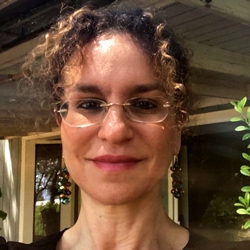
NVC Resources on Feelings
-
Grief is often confused with anguish. Anguish is a painful feeling that comes along with deep resistance to an experience or truth. Grief that leads to healing is an expansive state. It is a willingness to be with an experience and truth. If you're not resisting grief, then it's a neutral-to-pleasant experience. Pleasant sensations can include a sense of space and relief as something is integrated and tense holding releases.
-
With these practices make space before reacting to emotion or external stimulus. This can enable your capacity to respond from your self-connection to universally shared values. With practice you can create the capacity to temporarily put impulsiveness aside, in the service of connection with yourself and others, and in service of more informed and effective strategies.
-
Anger is neither good nor bad. When you don't foresee it or you haven't cultivated a relationship to anger, you may behave from it and hurt yourself and others. There are three reasons anger may rise: primitive anger, resistance, and lack of resources. For practicing with these last two types of anger, we'll look at four practices: cultivate awareness, pause and expand, self-care and planning, and allow grief.
-
When feeling unworthy, powerless, or afraid, we can hear others' comments as criticism, rejection, demands, limits, or attacks. Practice self-compassion, release attachments, and ask “How can I stretch the boundaries of who I believe myself to be, in service of love?”. Try replacing love with a word that inspires you (e.g. freedom, thriving, etc). Note answers that arise later. Or explore the question with a trusted person or in a journal. Read on for examples.
-
Trainer Tip: It's impossible to value other people’s needs and remain compassionate if we simultaneously harbor judgments. If we're willing to shift this behavior we can translate our judgments into acknowledging how something affects us. Once I got into the habit of this, my judgments began to subside dramatically. It became easy to love people and feel compassion for them, and I experienced a freedom I had never known before.
-
Trainer Tip: Every time you criticize yourself, you cause yourself to feel shame and guilt, which promotes depression and stagnation. Instead, bringing in more self compassion can increase opportunities for change. Do this by acknowledging your needs (or values) that aren’t met by your actions. Read on for how to do this.
-
Has someone ever talked to you to the extent that you're no longer enjoying it, and you now wonder if they even know you're there? Learn ways to bring in emotional understanding, engage more honestly and open-heartedly, and bridge next steps to the type of conversation that engages everyone's needs.
-
Ask the Trainer: "A participant in our beginners' NVC practice group asked the co-facilitators if there was a confidentiality agreement that was typically used in NVC practice groups?"
-

NVC Zen
The Paradox of Responsibility
We each have the power to be the creator of our own inner experience, no matter what is going on externally. The moment you imply wrongness on others, you give power to them. In this excerpt, Aya Caspi shows that the more self-responsibility you take, the more freedom you will have.  
-
Even in the face of societal upheavals we can look for what's in our power to change. For example, we can participate in systemic change, and heal whatever we need to heal that which keeps us from living our values more readily. We can take the time to be present to those in pain, and to show up fully in our lives even when we feel stress. We can take strides to make a difference towards creating the world we want to live in.










